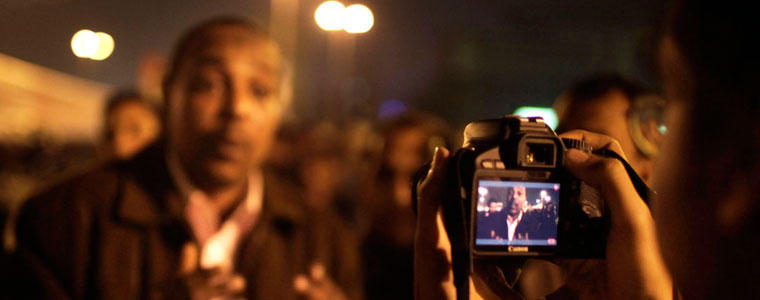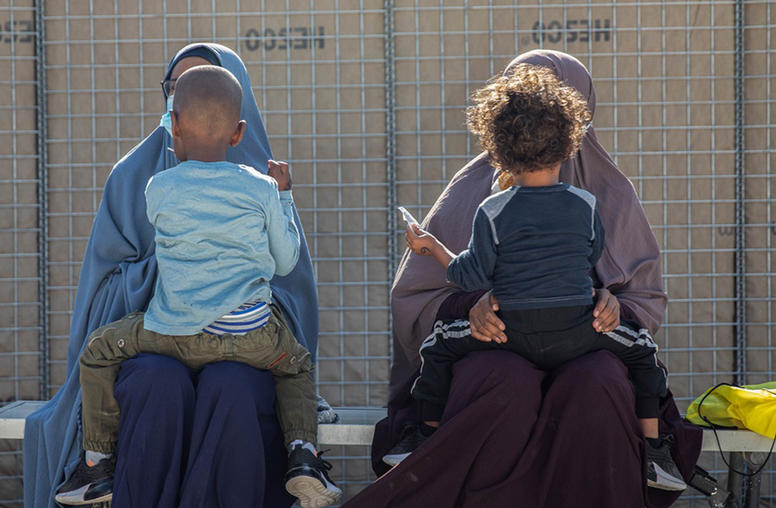The Parochial Web
In July 2010, renowned Internet research scholar Ethan Zuckerman gave a TED Talk on “Listening to Global Voices.” He describes how, while the infrastructure of the Internet might create new opportunities for us to have conversations across geographic and cultural boundaries, in reality, we tend to connect with people most like us. As in the offline world, on the Internet, birds of a feather flock together.

At the very least, this tendency toward what's known in social science as 'homophily' represents a lost opportunity. How many problems at a regional and global scale are we failing to solve due to insularity? Can the Internet help bridge long-standing divides between warring communities, leading them slowly toward sustainable peace? If that's our goal, then it's clear that simply having the infrastructure for bridge-building will not suffice; we'll need to create sustained, structural approaches.
As USIP PeaceTech Director Sheldon Himelfarb points out in a new Foreign Policy piece, one way of "cultivating a culture of mutual understanding and nonviolent conflict resolution among these future generations" is through "virtual exchanges" between students across the globe through curriculum-based, facilitated online dialogues. The recent announcement by the U.S. State Department that they are creating a virtual exchange program (named for the late Ambassador to Libya Chris Stevens) is only the latest step in a growing movement around the use of what we're calling "Exchange 2.0" as a tool of peacebuilding.
But insularity online represents more than just a squandered chance at increasing intercultural understanding. In Zuckerman's words, it can "make you stupid". He argues that "it's possible to miss huge trends, changes and opportunities by talking solely to people who agree with you."
Indeed, in the latest report released as part of USIP's ongoing Blogs & Bullets series, this one entitled "Syria's Socially Mediated Civil War," researchers analyzed more than 38 million Twitter messages over the course of more than two years and found that English-language discussions of events in Syria were highly insular, leading to a "badly skewed impression of the broader Arabic discourse." The study gauged insularity with metrics such as how often messages were retweeted and by whom.
At one point, English-speaking journalists represented the most insular of all the clusters of people discussing Syria on Twitter. And this insularity did not improve over time. It got dramatically worse, as did, therefore, the ability of their audiences to receive richer -- dare we say "balanced" -- perspectives on the ongoing conflict. (I've written elsewhere about how journalists' dependence on social media as a source of news has distorted the way the conflict has been portrayed.)
The report also describes the insularity of various other communities discussing the conflict online -- pro-Assad, pro-opposition, and various national clusters. Interestingly, these discussions were not insular to begin with, but turned that way over time. At first, discussions were more tightly embedded in the broader narratives around the Arab Spring. But they soon transformed into "multiple, increasingly insular, competing networks." This might not come as a surprise to observers of the increasingly entrenched, drawn-out conflict, but this study clearly proves through quantitative analysis what has long been suspected.
How are we to tackle this kind of homophily, which seeks 'bias-confirming information,' as Zuckerman calls it? His answer was to create Global Voices, an online community of citizen journalists who curate, translate, and report on stories from around the world.
Despite its high-quality content, as Zuckerman freely admits, Global Voices has hardly succeeded in superseding mainstream media channels. This may be, in part, because it inadvertently creates its own homogeneous group of 'heterophiliacs' -- people who are already interested in information from diverse sources, and actively seek it out in places like Global Voices.
As with virtual exchanges, the only way we might be able to overcome homophily is to create sustained mechanisms, most likely through education, that foster a sense of curiosity, wonder, and desire for worldviews that differ from our own.
Anand Varghese is a program officer in USIP's PeaceTech Initiative.



